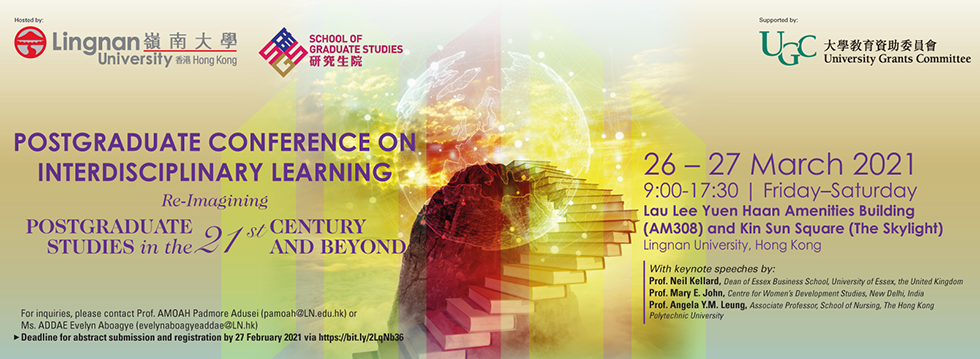
How does time perception predict academic procrastination among university students? An investigation in time production experiments with facial stimuli in Hong Kong
Start Date
27-3-2021 9:45 AM
End Date
27-3-2021 10:00 AM
Description
Academic procrastination (AP) refers to the unnecessary delay of an intended course of academic task despite expecting things to be worse off. According to the temporal motivational theory, AP is a motivational issue which is inversely associated with the task aversiveness and the time between the present moment and the task deadline, the author therefore wonders if one's ability of time perception (i.e., accurate judgement of passage of time) will also be related to AP.
Methods: Participants were Hong Kong university students, who completed a questionnaire on AP, and subsequently participated in a time production experiment with both neutral and sad facial stimuli used as a measure of time perception accuracy. Results: For participants with poorer time perception performance (i.e., time over-production) with regards to both neutral and sad facial stimuli, they were more likely to report higher tendency of AP.
The present findings may imply that the tendency of time over-production implied the individuals’ tendency of feeling the time as lasting longer and progressing slower (i.e., time dilation), which predisposed them to be demotivated from accomplishing academic tasks as rapid as their counterparts did.
Recommended Citation
To, P. Y. L. (2021, March). How does time perception predict academic procrastination among university students? An investigation in time production experiments with facial stimuli in Hong Kong. Presented at the Postgraduate Conference on Interdisciplinary Learning: Re-Imagining Postgraduate Studies in the 21st Century and Beyond. Lingnan University, Hong Kong.
How does time perception predict academic procrastination among university students? An investigation in time production experiments with facial stimuli in Hong Kong
Academic procrastination (AP) refers to the unnecessary delay of an intended course of academic task despite expecting things to be worse off. According to the temporal motivational theory, AP is a motivational issue which is inversely associated with the task aversiveness and the time between the present moment and the task deadline, the author therefore wonders if one's ability of time perception (i.e., accurate judgement of passage of time) will also be related to AP.
Methods: Participants were Hong Kong university students, who completed a questionnaire on AP, and subsequently participated in a time production experiment with both neutral and sad facial stimuli used as a measure of time perception accuracy. Results: For participants with poorer time perception performance (i.e., time over-production) with regards to both neutral and sad facial stimuli, they were more likely to report higher tendency of AP.
The present findings may imply that the tendency of time over-production implied the individuals’ tendency of feeling the time as lasting longer and progressing slower (i.e., time dilation), which predisposed them to be demotivated from accomplishing academic tasks as rapid as their counterparts did.

